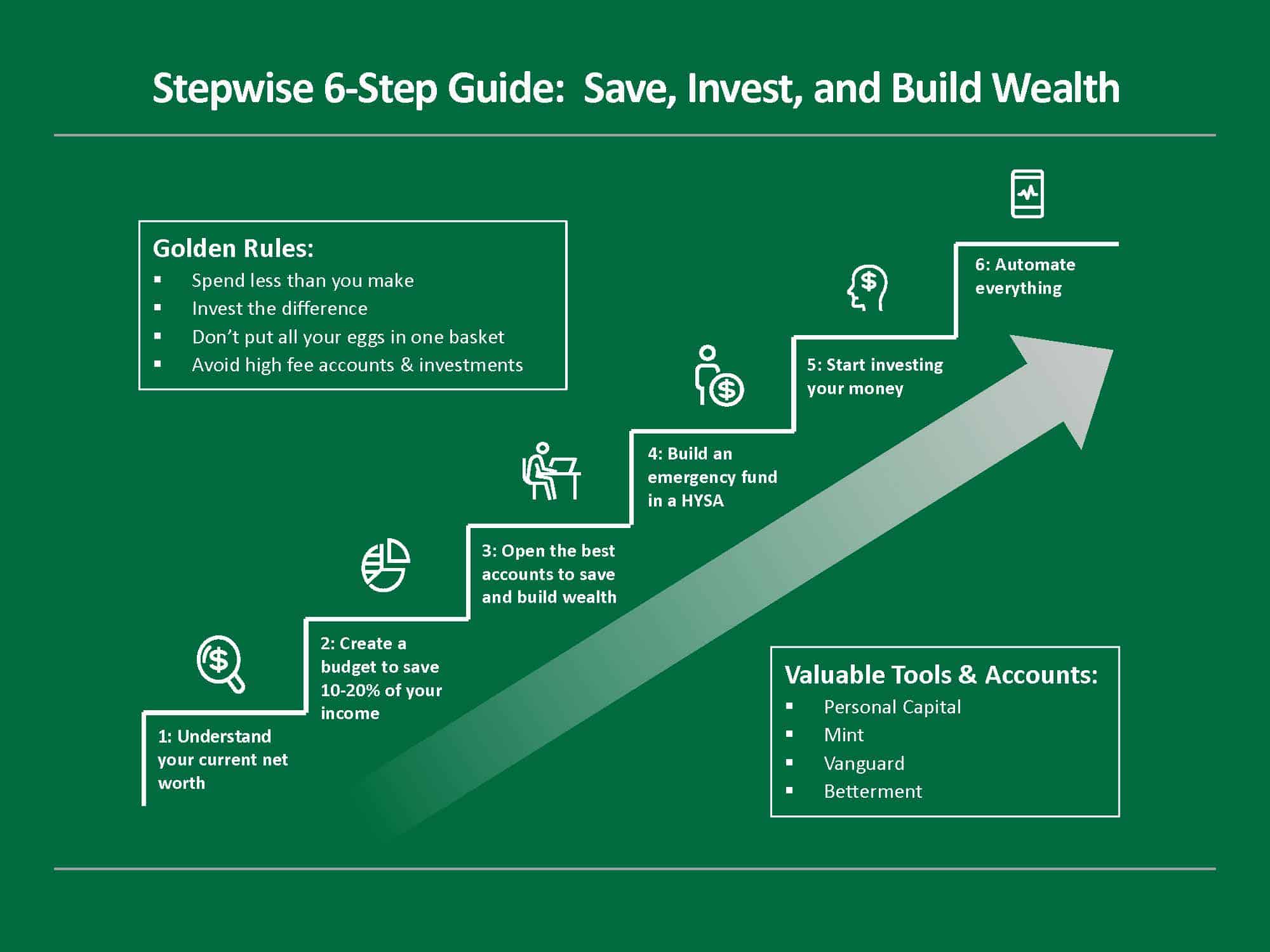Introduction to Wealth Building
Building wealth is the process of accumulating assets and resources over time to increase one’s financial stability and security. It is essential for achieving long-term financial goals and ensuring a comfortable lifestyle in the future.
Importance of Wealth Building
Wealth building is crucial as it provides financial security, enables one to achieve financial independence, and creates opportunities for future investments and ventures.
Difference Between Saving and Investing
- Saving involves setting aside a portion of income for short-term goals or emergencies, usually kept in low-risk accounts. It helps to maintain financial stability.
- Investing, on the other hand, involves putting money into assets like stocks, real estate, or businesses to generate long-term returns and grow wealth over time.
Concept of Passive Income
Passive income is earnings derived from investments or ventures in which the individual is not actively involved. This type of income allows for wealth to grow without continuous effort.
Successful Wealth-Building Strategies
- Diversifying investments to reduce risk and maximize returns.
- Creating multiple streams of income through side businesses, rental properties, or investments.
- Regularly contributing to retirement accounts and taking advantage of employer-sponsored plans.
Setting Financial Goals

Setting clear financial goals is crucial in the wealth-building process as it provides a roadmap for your financial journey and helps you stay focused and motivated. By establishing both short-term and long-term financial goals, you can create a plan to achieve financial success and secure your future.
Importance of Setting Clear Financial Goals
Setting clear financial goals allows you to have a clear vision of what you want to achieve financially. It helps you prioritize your spending, save more effectively, and make informed decisions about investments and expenses. Without clear goals, it’s easy to lose track of your finances and miss out on opportunities to grow your wealth.
Tips on Setting Achievable Goals
- Define your goals: Clearly Artikel what you want to achieve with your finances, whether it’s saving for a down payment on a house, building an emergency fund, or retiring early.
- Set SMART goals: Make sure your goals are Specific, Measurable, Achievable, Relevant, and Time-bound. This framework helps you create realistic and actionable goals.
- Create a budget: Establish a budget to track your income and expenses, allowing you to see where your money is going and identify areas where you can cut back or save more.
- Track your progress: Regularly monitor your finances to ensure you are on track to meet your goals. Adjust your plan as needed to stay aligned with your objectives.
Examples of SMART Financial Goals
“Save $5,000 for an emergency fund by the end of the year by setting aside $500 from each paycheck.”
“Pay off $10,000 in credit card debt within 18 months by making monthly payments of $600.”
“Increase retirement contributions by 3% annually to reach a savings goal of $1 million by age 65.”
Investing for Wealth Building

Investing is a crucial component of wealth building, allowing individuals to grow their financial assets over time. By putting money into different types of assets, such as stocks, bonds, real estate, and other investment vehicles, individuals can potentially earn returns that outpace inflation and increase their overall wealth.
Basics of Investing
- Stocks: Represent ownership in a company and can offer the potential for high returns but also come with higher risks.
- Bonds: Debt securities issued by governments or corporations that pay interest over time and are considered less risky than stocks.
- Real Estate: Investing in physical properties or real estate investment trusts (REITs) can provide rental income and potential appreciation in property value.
Diversification in Investment Portfolio
Diversification involves spreading investments across different asset classes to reduce risk. By diversifying your portfolio, you can minimize the impact of poor performance in one investment on your overall wealth.
Researching and Choosing Investments
When selecting investment opportunities, it’s essential to conduct thorough research. Consider factors such as historical performance, fees, management team, and overall market conditions before making any investment decisions.
Compound Interest and Wealth Building
Compound interest is the concept of earning interest on both the initial investment and the accumulated interest over time. By reinvesting earnings, individuals can benefit from exponential growth in their investment returns, leading to significant wealth accumulation in the long run.
Income Generation Strategies
Increasing your income streams is a crucial step in building wealth. Here are some effective strategies to boost your earnings:
Side Hustles and Freelancing
Engaging in side hustles or freelancing can provide you with additional income. This could include offering services like graphic design, writing, or consulting in your spare time.
- Start a freelance gig on platforms like Upwork or Fiverr.
- Monetize a hobby or skill you excel at, such as photography or web development.
- Consider part-time jobs or delivering services like Uber or Lyft for extra cash.
Starting a Business
Entrepreneurship can be a lucrative way to generate income. Here’s how you can start your own business:
- Identify a niche market and create a business plan.
- Secure funding through loans, investors, or crowdfunding.
- Build a strong online presence and marketing strategy to attract customers.
Negotiating a Salary Raise or Promotion
Advocating for yourself at work can lead to a higher income. Follow these tips to negotiate a better salary or promotion:
Highlight your achievements and contributions to the company.
Research industry standards to support your salary increase request.
Practice your negotiation skills and be prepared to make a compelling case.
Passive Income Generation
Passive income involves earning money without actively working. Here are some ways to generate passive income:
- Invest in dividend-paying stocks or real estate properties.
- Create and sell digital products like e-books or online courses.
- Participate in affiliate marketing programs to earn commissions on sales.
Successful Income Generation Examples
Looking at successful individuals who have mastered income generation can provide valuable insights. Some examples include:
- Entrepreneurs like Elon Musk who have built multiple successful businesses.
- Freelancers who have established a strong client base and reputation in their industry.
- Investors who have diversified their portfolios and consistently earn passive income.
Wealth Preservation and Protection

Estate planning and wealth preservation are crucial aspects of building and maintaining financial security for yourself and your loved ones. By taking proactive steps to protect your assets, you can ensure that your wealth is preserved and passed on according to your wishes.
Creating a Will and Estate Planning
Estate planning involves creating a comprehensive plan for the distribution of your assets after your passing. This typically involves creating a will, setting up trusts, and designating beneficiaries for your various accounts and properties. By having a clear plan in place, you can avoid disputes among family members and ensure that your assets are distributed according to your wishes.
Insurance and Risk Management
Insurance plays a key role in wealth protection by providing financial protection against unforeseen events such as accidents, illnesses, or natural disasters. By having adequate insurance coverage, you can mitigate risks and safeguard your assets from unexpected expenses. It’s important to regularly review your insurance policies to ensure they align with your current financial situation and goals.
Asset Protection Strategies
Asset protection involves safeguarding your wealth from potential creditors, lawsuits, or other threats. This can be done through various legal strategies such as setting up trusts, limited liability entities, or asset protection trusts. By structuring your assets properly, you can shield them from outside risks and preserve your wealth for future generations.
Common Pitfalls to Avoid
– Procrastinating on estate planning can lead to confusion and disputes among family members.
– Not having adequate insurance coverage can leave you vulnerable to financial losses in the event of emergencies.
– Failing to implement proper asset protection strategies can expose your wealth to unnecessary risks and threats.